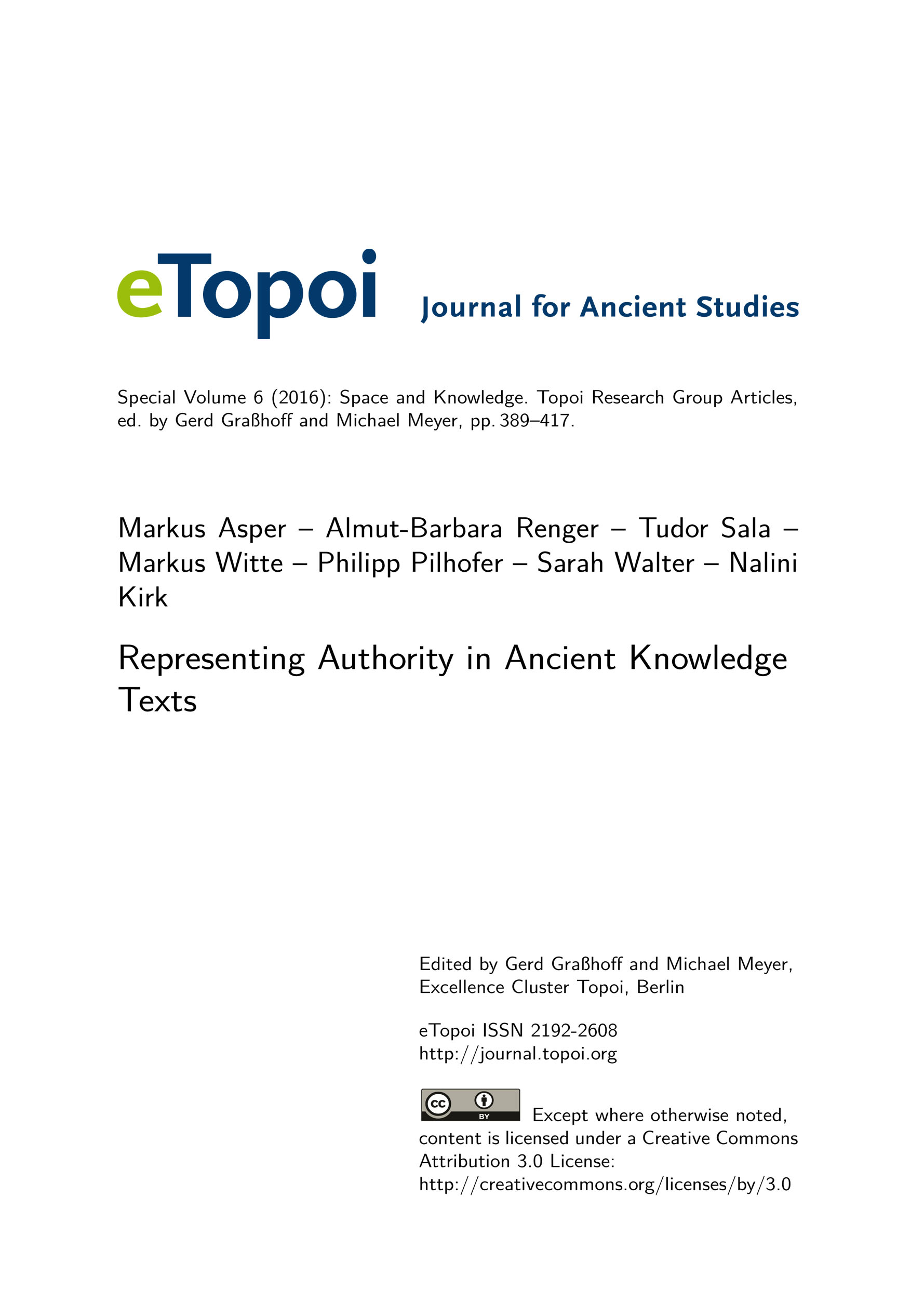Representing Authority in Ancient Knowledge Texts
In this paper we would like to discuss some questions concerning authority and knowledge with obvious relevance to our research group Personal and apersonal authorization (B-5). After briefly summarizing how the phenomenon of ‘authority’ is viewed in general, this paper takes up the specific case of authority and tradition. We then consider text as a special case of tradition, and finally knowledge texts as a special case of texts. The most significant section of the paper is the second half, where we sketch out two complementary methods of constructing or representing authority in such texts, one personal and one non-personal. Ancient Greek, religious studies, theology, church history, ancient history and Chinese studies are our areas of expertise, so most of the examples we have chosen come from those fields. But our intention is to draw broad conclusions that could also apply to other traditions as well.

